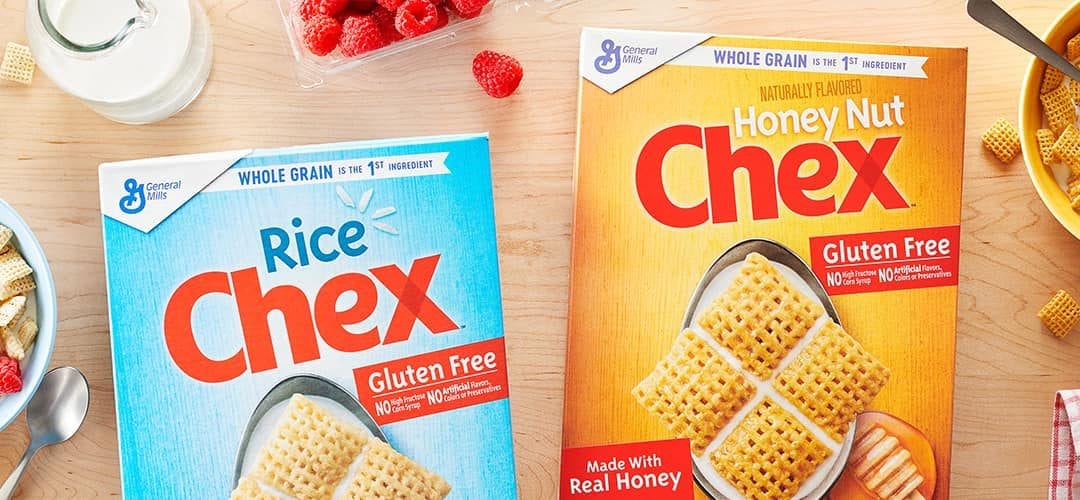Written by the Windfall account team.
When marketing for a food and beverage client, it is of utmost importance to understand audience values in order to more effectively communicate brand messages. When it comes to specific diets–like vegan, gluten-free and paleo–eating habits and brand preferences are defined by so much more than what they are limited to. Rather, diets constitute a lifestyle and it is important to understand the values audiences associate with these diets in order to best market to them. When looking at brands that effectively cater to audiences with specific diets, there are a few that stand out in regard to effectively embodying diet-driven lifestyles.
Chex Cereal
General Mills’ Chex Cereal was one of the first mainstream cereal brands that came out with gluten-free options. Now, six of their seven cereal flavors are gluten-free (all but their wheat flavor), so all can enjoy. Gluten-free consumers have relied on Chex for their breakfast cereal for a while, but other brands are beginning to follow in Chex’s footsteps. Because Chex has set the standard for tasty gluten-free breakfast options, other brands will have to meet or go beyond that standard in order to succeed in reaching this audience.
BluePrint juices
BluePrint is an organic juicing company, which started small in 2007. While multi-day juice cleanses are their most popular product, they are also making an effort to market their juice as being an everyday beverage. This marketing strategy reaches audiences seeking stylish and healthy lifestyles. BluePrint has identified their primary audience as being women in their late 20s who are educated, fashionable, health-centered and savvy with the times. BluePrint uses social media platforms such as Twitter and Pinterest to reach this demographic. For example, a recent Twitter post included a picture of a BluePrint juice, alongside a watch and lip gloss, with the caption hinting that these three items are daily essentials. This post is an example of how they communicate specifically to their chosen audience, while also emphasizing their goal of juice being an everyday beverage.
Silk
Silk was one of the first milk-alternative brands to produce a variety different options for consumers. Silk now offers yogurt alternatives, creamers and five different dairy-free milk options, all of which are plant-based. By offering a multitude of options for vegan consumers, Silk has become one of the number one plant-based beverage producers. Vegan consumers that have the ability to choose between a variety of different flavors and options, something that Silk has prioritized in order to set itself apart from competitors. Silk has set the standard for good taste and good nutrition, but has also made strides to positively impact the world through plant-based nutrition.
Each of these companies has recognized the importance to catering to groups with specific dietary needs. Because these diets are rising in popularity, it’s important to establish brand loyalty as early as possible in order to secure a position in the community at large. Understanding not only the appeal to these distinct markets, but also recognizing the broader audience looking for healthy foods in general, is key to brand image and sales.

